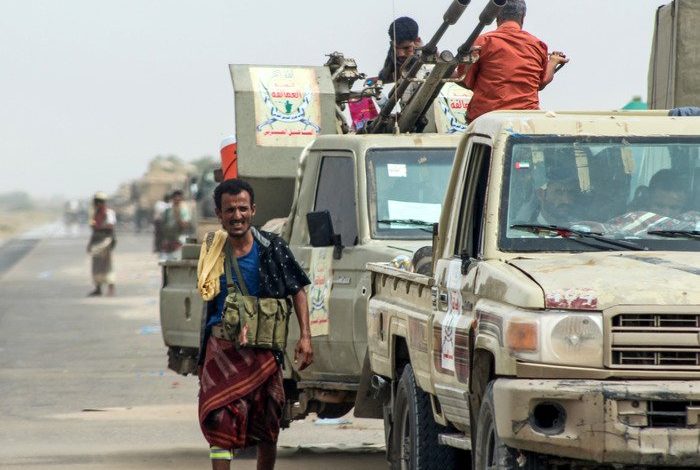Yemen’s warring parties agree to two-month truce

Yemen’s warring sides have accepted a two-month truce, starting with the Muslim holy month of Ramadan, the United Nations envoy to Yemen said Friday.
The envoy, Hans Grundberg, announced the agreement from Amman, Jordan, after meeting separately with both sides in the country’s brutal civil war in recent days. He said that he hoped the truce would be renewed after two months.
The agreement comes after a significant escalation in recent weeks that saw Yemen’s Iran-backed Houthi rebels claim several attacks across the country’s borders, targeting the United Arab Emirates and Saudi Arabia.
U.N. Secretary-General Antonio Guterres said he hoped the truce would pave the way toward peace, but added, “we know that these agreements are always fragile”.
The truce is to start on Saturday, the first day of Ramadan, and will also allow for shipments of fuel to arrive in the Yemen’s key port city of Hodeida and for passenger flights to resume from the airport in the capital, Sanaa.
U.N. spokesperson Farhan Haq said the warring sides agreed to halt all offensive military, air, ground and maritime operations inside Yemen and across its borders, starting at 7 p.m. Saturday.
The agreement came after the Saudi-led coalition, which has been battling the Houthis in Yemen since 2015, began observing a unilateral cease-fire on Wednesday — an offer that was rejected by the rebels. Saudi Arabia had proposed the unilateral cease-fire as part of talks it hosted aiming to resolve the war in Yemen. But the Houthis did not attend the talks because they were not held on neutral territory.
Last Saturday, the Houthis also announced their own unilateral initiative that included a three-day suspension of cross-border attacks on Saudi Arabia, as well as fighting inside Yemen. Their announcement came shortly after they claimed attacks on a key Saudi oil facility in the Red Sea city of Jiddah, ahead of a Formula One race in the kingdom.
Inside Yemen, many front lines have largely stagnated, particularly in the key government-held city of Marib, as the war has become more stalemated.
On Friday, in a Twitter post, Mohammed Abdel-Salam, the spokesman and chief negotiator of the Houthis, welcomed the cease-fire.
Yemen’s war began in September 2014, when the Houthis swept into the capital, Sanaa, from their northwestern stronghold in the Arab world’s poorest country. The Houthis then pushed into exile the government of President Abed Rabbo Mansour Hadi, elected in 2012 as the sole candidate after the long rule of Ali Abdullah Saleh.












